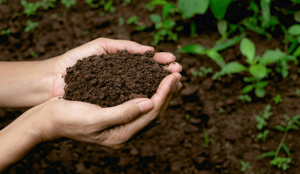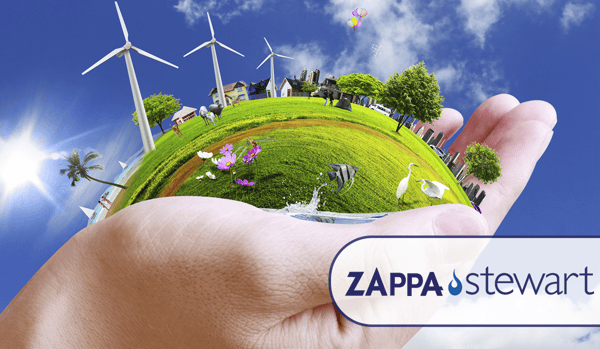Zappa-Stewart supplies large volumes of sodium polyacrylate superabsorbent polymers (SAPs) to many industrial and consumer sectors. Hot/cold packs, the gel-filled packaging that accompanies perishable online grocery deliveries, is one specific SAP application that is experiencing explosive growth in demand. With the increased demand for SAPs in the hot/cold pack market, we have also received an increasing volume of questions from customers and end users about ways that SAPs can be repurposed, rather than simply tossed in the garbage. It’s a great question and fortunately for millions of consumers across the globe, we have some answers.
Some of the major uses of SAPs on a global scale include the absorbent media in the modern baby diaper, toxic industrial waste solidification reagents, and water retention media for improved agricultural crop yield. The average hot/cold pack consumer is unlikely to have a need for industrial waste solidification and repurposing used diapers would be unsanitary. However, increasing the hydration capacity of the soil in gardens, flower pots, and vases is a reuse of SAPs that many can appreciate, and practice, to help reduce their environmental footprint.
Also read: With SAPs: “S” stands for SAFE
SAPs that have been hydrated with water, such as the SAP found in hot/cold packs, can serve as a slow, controlled source of water for plant roots long after the plants have been watered. Furthermore, once the SAPs particles have discharged the water to the soil, additional watering of the plant can rehydrate the SAPs and offer continuous hydration. If you live in a region where precipitation is infrequent or droughts are common, the water retention functionality of SAP provides critical moisture to plants while minimizing the need to physically water or irrigate.
Also read: 5 Myths About Superabsorbent Polymers for Waste Solidification
 Using ice packs as soil conditioners can be easily accomplished by opening the plastic ice pack bags and spreading the contents across the soil of your garden. During dry spells the SAPs will slowly release the absorbed water and eventually revert back to crystalline particles, ready to capture the next rain. Because sodium polyacrylate SAPs are nontoxic and do not leach any chemicals into the soil, there are no known dangers to the plants being grown.
Using ice packs as soil conditioners can be easily accomplished by opening the plastic ice pack bags and spreading the contents across the soil of your garden. During dry spells the SAPs will slowly release the absorbed water and eventually revert back to crystalline particles, ready to capture the next rain. Because sodium polyacrylate SAPs are nontoxic and do not leach any chemicals into the soil, there are no known dangers to the plants being grown.
For consumers interested in a more artistic use, consider spreading a small amount of gelled SAPs on a cookie sheet, or similar surface, and allow the material to dry for several days. This process will return the SAPs to their original granular, crystalline structure. Next, rehydrate the SAPs by adding water mixed with food coloring. This will result in colored gel particles that can enhance the look of any clear flower vase (and keep your flowers watered)!
With the time saved from watering your favorite plants, you will have much more time for activities, such as ordering your weekly groceries online and, in the process, building up your SAP supply.
As a integral stakeholder in the environmental protection and remediation sectors, Zappa-Stewart and our parent company, Chase Corporation, view minimization of landfill waste as one of the simplest and most sustainable ways to achieve our environmental stewardship goals. Repurposing hydrated SAPs from leftover hot/cold packs is one easy way to minimize landfill waste and simultaneously promote healthy plant growth.
For more information about superabsorbent polymers, hot/cold packs, or creative SAPs reuse applications, please contact Chad Showalter at cshowalter@chasecorp.com or 630.337.1856.






